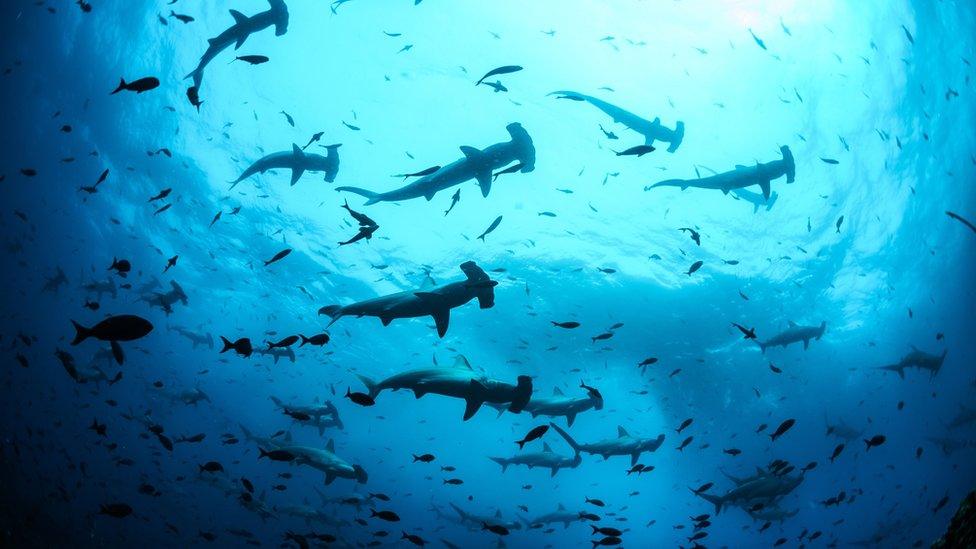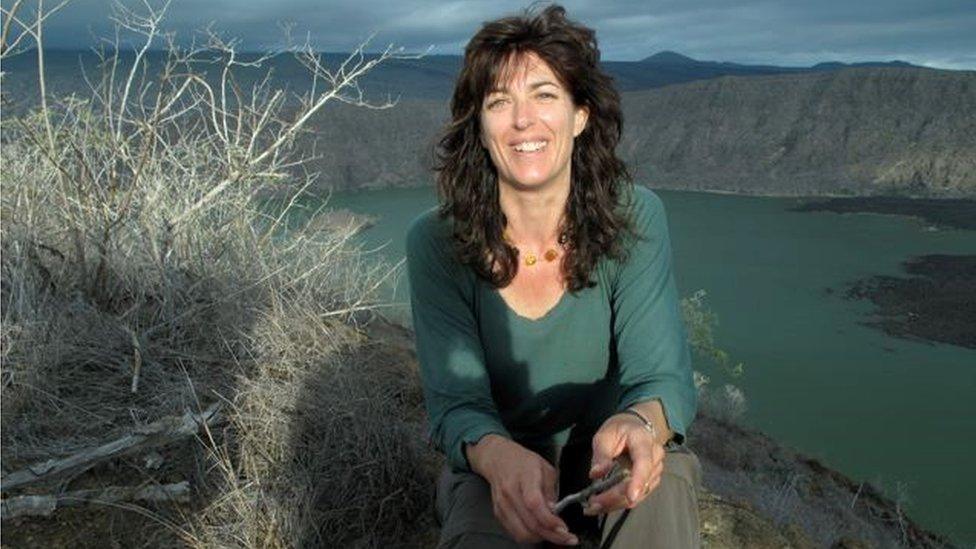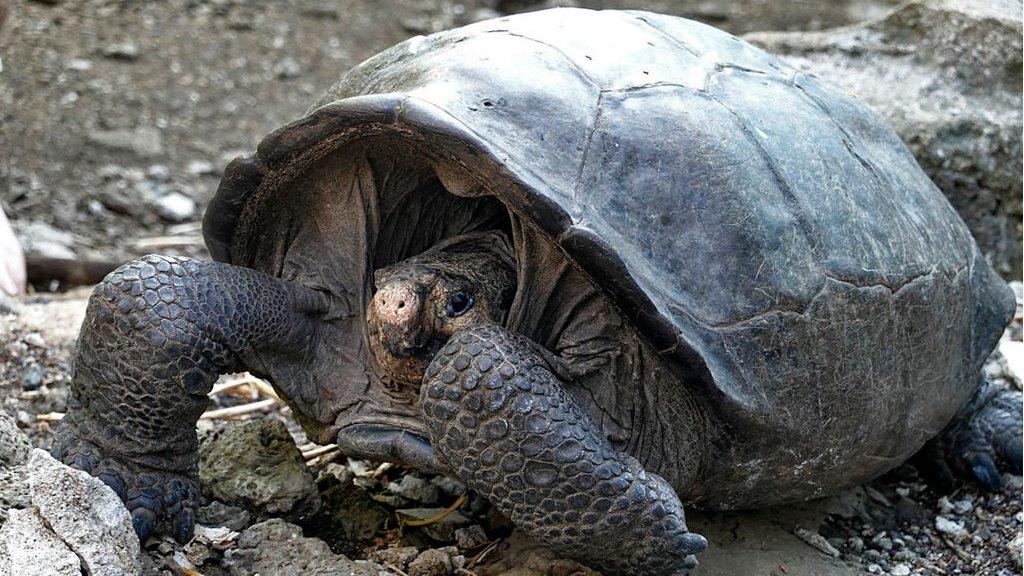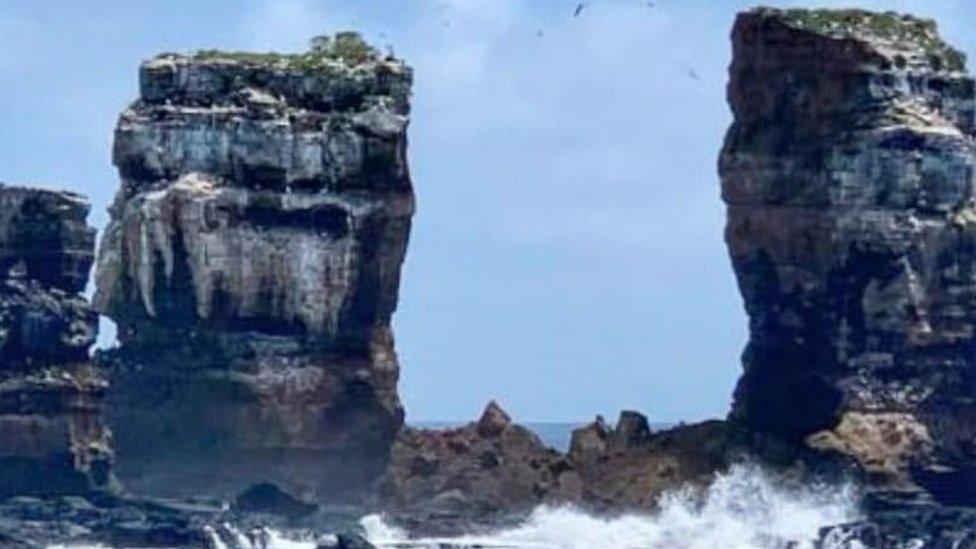Galapagos marine reserve: Conservationists hail expansion
- Published

The waters surrounding the Galapagos islands teem with wildlife such as hammerhead sharks
Conservationists have welcomed the announcement by Ecuador that it will expand the marine reserve around the Galapagos islands by 60,000 sq km.
President Guillermo Lasso announced the move at the COP 26 climate summit in Glasgow.
Mr Lasso told the BBC that his government wanted to show that action rather than words was the most effective way to fight climate change.
Conservationists called it "a brilliant first step".
The existing marine protection area around the Galapagos measures 133,000 sq km and was one of the first large-scale marine conservation areas to be created.
It is one of the most productive marine ecosystems in the world.
Conservationists hope that its expansion will protect the migration routes of endangered species such as the whale shark and make the reserve more resilient to climate change.
Ties that bind
Among those praising the move is Sarah Darwin, the great-great-granddaughter of biologist Charles Darwin, whose theory of evolution was inspired by the biodiversity he found on the Galapagos.
Sarah, a botanist and an ambassador for the Galapagos Conservation Trust, told the BBC that she was "very, very excited that President Lasso is taking the Galapagos so seriously".

Botanist Sarah Darwin is a descendant of Charles Darwin and passionate about the Galapagos
"We're really looking forward to taking further conservation measures forward with him both in the marine reserve and the islands themselves," she said. "This is a real commitment, I think."
But the CEO of the Galapagos Conservation Trust, Sharon Johnson, said it was important that the resources be put in place to adequately protect the newly enlarged reserve.
In 2020, a huge number of Chinese fishing boats were spotted in waters off the Galapagos with conservationists accusing the fleet of "pillaging" the area for squid.
President Lasso denied that the expansion of the marine reserve was a response to the Chinese fleet's movements, insisting it was "an autonomous decision of the Ecuadorean government".
Mr Lasso said that in his most recent conversation with the Chinese president he sensed "a clear commitment to respect Ecuador's maritime zone" and that he therefore hoped there would be no repeat of the scenes which had played out in 2020.
He added that his government would swap debt for conservation to create a fund that would allow Ecuador to beef up navy patrols to protect the area and to provide artisanal fishermen working outside the marine reserve with support.
The Galapagos and the seas surrounding them are a unique ecosystem home to whales, turtles and tuna, explain Prof Sandy Tudhope and Dr Meriwether Wilson from the University of Edinburgh.
The fact that they are so rich in commercially important species is also what makes them so attractive to fishermen, say the two scientists, who were part of the team whose research underpinned the decision to expand the reserve.
But Prof Tudhope is confident that the expansion will benefit fishermen, too.
"Marine protection is often identified as a way to support fisheries," he says. "If you manage to get the areas of protection correct, then they act as nursery grounds and then you get a spill-out from these areas that support the surrounding fisheries."
He says he hopes the benefits of protecting such a big area of ocean will become clear and that those who may have been sceptical of the move will see that it has not crippled the Ecuadorean fishing fleet.
For Sarah Darwin, it's simple: "If you can save the Galapagos, you can save the world."


Related topics
- Published26 May 2021

- Published18 May 2021
